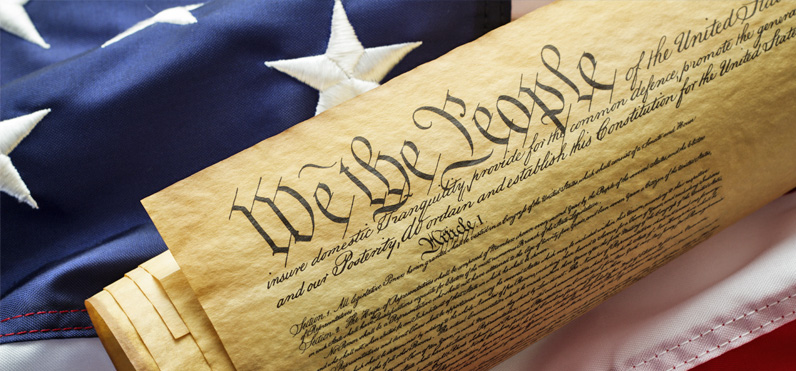On March 10, 2020, Governor Baker declared a state of emergency for Massachusetts due to the COVID-19 pandemic. The Governor then issued a series of emergency orders aimed at reducing the number of COVID-19 infections. Among other things, the orders banned large gatherings, closed the physical workspaces of nonessential businesses, mandated the wearing of face coverings when social distancing was not possible, and reopened the businesses in different phases.
Accordingly, Governor Baker’s actions are deemed to be constitutional, and his emergency orders are enforceable.
In June 2020, a group of business owners filed a lawsuit, captioned Desrosiers, et al. v. The Governor, challenging the Governor’s emergency orders. The plaintiffs’ businesses did not qualify as “essential” and were therefore temporarily closed by Governor Baker’s orders. The plaintiffs argued that the Governor’s state of emergency declaration and emergency orders were not enforceable because they were unauthorized and unconstitutional. The plaintiffs based their argument on language in Section 5 of the Massachusetts Civil Defense Act (“CDA”), which confers certain powers to the Governor in the event of “immediate and specific cataclysmic events of limited duration.” The plaintiffs claimed that the COVID-19 pandemic did not qualify under this definition of a state of emergency.
In addition, the plaintiffs insisted that powers to address public health crises such as pandemics are granted under a different law, the Massachusetts Public Health Act (“PHA”). According to the plaintiffs, during a public health crisis the PHA gives powers only to local boards of health, and therefore the Governor exceeded his authority.
The plaintiffs also challenged the constitutionality of Governor Baker’s emergency orders by arguing that he failed to provide them with adequate process before denying their liberty and property interests, and that the Governor unlawfully dispensed with the law by arbitrarily deciding which businesses were “essential” and which could reopen under his Reopening Plan.
On December 10, 2020, the Massachusetts Supreme Judicial Court (“SJC”) issued a decision in the Desrosiers case. The SJC confirmed the Governor’s authority to declare a state of emergency and issue orders in response to the COVID-19 pandemic. The SJC further ruled that the emergency orders did not violate the constitutional rights of affected business owners.
Unpersuaded by the plaintiffs’ arguments, the SJC considered additional language of CDA Section 5, in particular the phrase “other natural causes,” and concluded that the CDA encompasses a health crisis on the level of the COVID-19 pandemic. The SJC applied its reasoning under the fundamental statutory interpretation rule that a statute must be read as a whole, and unambiguous language must govern where its application would not lead to an absurd result or contravene the Legislature’s clear intent.
The SJC also noted that nothing prevented the CDA from supplementing the PHA during times of actual public health emergencies, such as the COVID-19 pandemic. The SJC therefore concluded it was clear from the language of both the CDA and PHA “that the Legislature could not have intended the PHA, and therefore primarily local boards of health, to be exclusively responsible for addressing a public health crisis such as COVID-19, a pandemic that has killed over one million people globally and over 10,000 people in Massachusetts.”
The SJC did, however, curtail its holding by emphasizing that “[o]nly those public health crises that exceed the resources and capacities of local governments and boards of health, and therefore require the coordination and resources available under the CDA, are contemplated for coverage under the CDA …. we do not hold that all public health emergencies necessary will fall within the CDA, nor do we hold that when the public health data regarding COVID-19 demonstrates stable improvement, the threshold will not be crossed where it no longer constitutes an emergency under the CDA.”
The SJC also disagreed with the plaintiffs’ assertion regarding the lack of adequate process. The emergency orders were general rules involving legislative or policy decisions that have prospective and general applications, and the orders were not adjudications identifying and specifically targeting particular persons. The SJC held that the law does not require any individualized adjudicatory hearings to carry out the Governor’s emergency orders.
The SJC also determined that the plaintiffs’ constitutionally protected substantive due process rights had not been violated by Governor Baker’s orders. The emergency orders were constitutional, as they were content neutral and narrowly tailored to address the COVID-19 pandemic: “[t]he emergency orders as a whole were informed by public health recommendations and serve the State interest of slowing the spread of COVID-19, which is a legitimate State interest … Although some businesses and organizations bear a larger burden than others under the emergency orders, this alone does not render arbitrary the restrictions imposed by the emergency orders.”
Finally, the SJC adopted a similar rationale for holding that the plaintiffs’ right to free assembly had not been violated. The Court reasoned that the emergency orders were unrelated to the nature of the regulated activities or to the persons themselves, and the imposed regulations from these orders were not substantially broader than necessary to achieve the government’s interest in reducing the dangers of the COVID-19 pandemic.
As summarized by Justice Cypher, “[t]he Governor is not, as the plaintiffs argue, ‘donn[ing] the mantle and crown’ to pick winners and losers; he is making difficult decisions about which types of businesses are ‘essential’ to provide people with the services needed to live and which types of businesses are more conducive to spreading COVID-19, and basing his emergency orders on those determinations.” Accordingly, Governor Baker’s actions are deemed to be constitutional, and his emergency orders are enforceable.
A copy of the SJC’s decision in Desrosiers may be found here.


